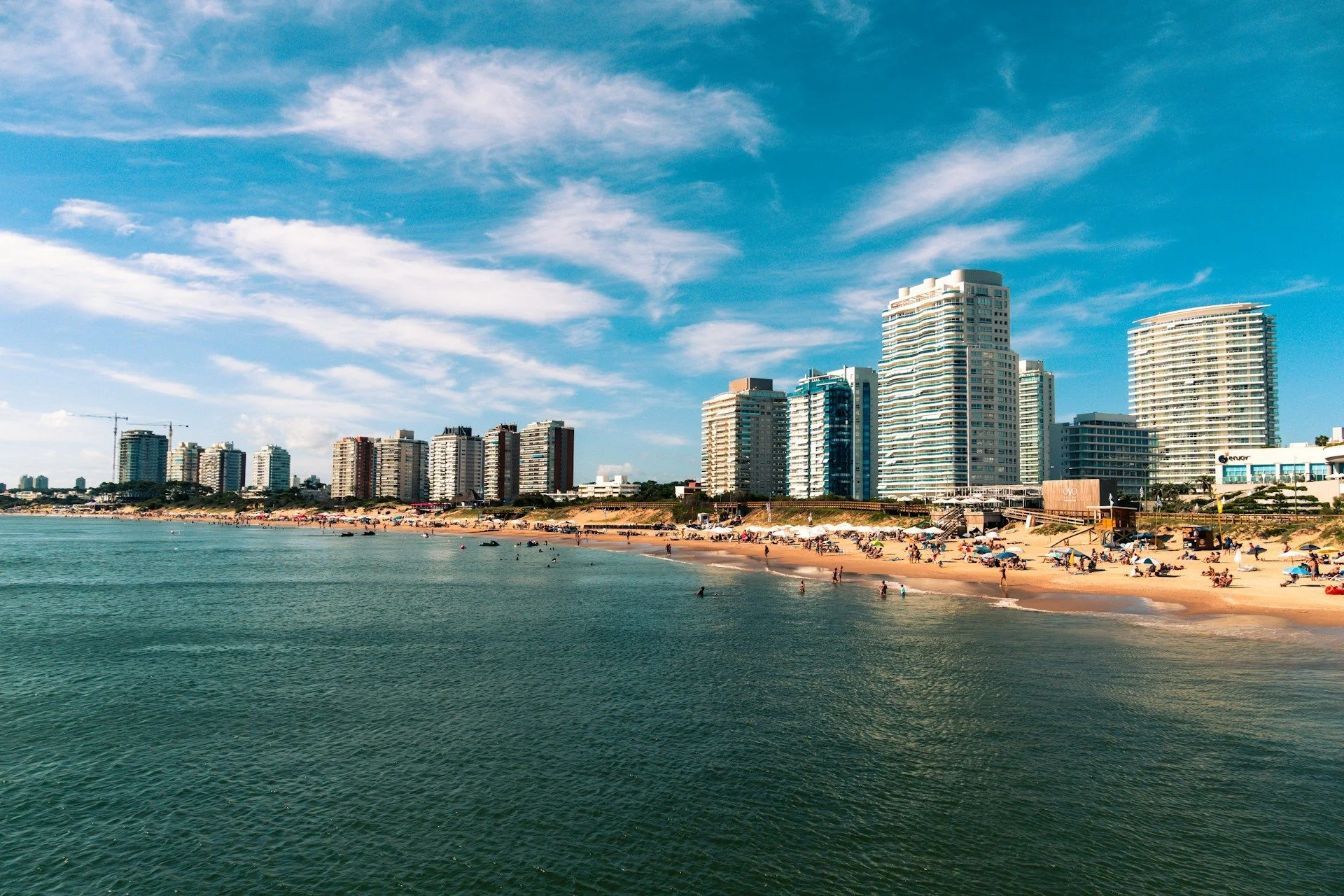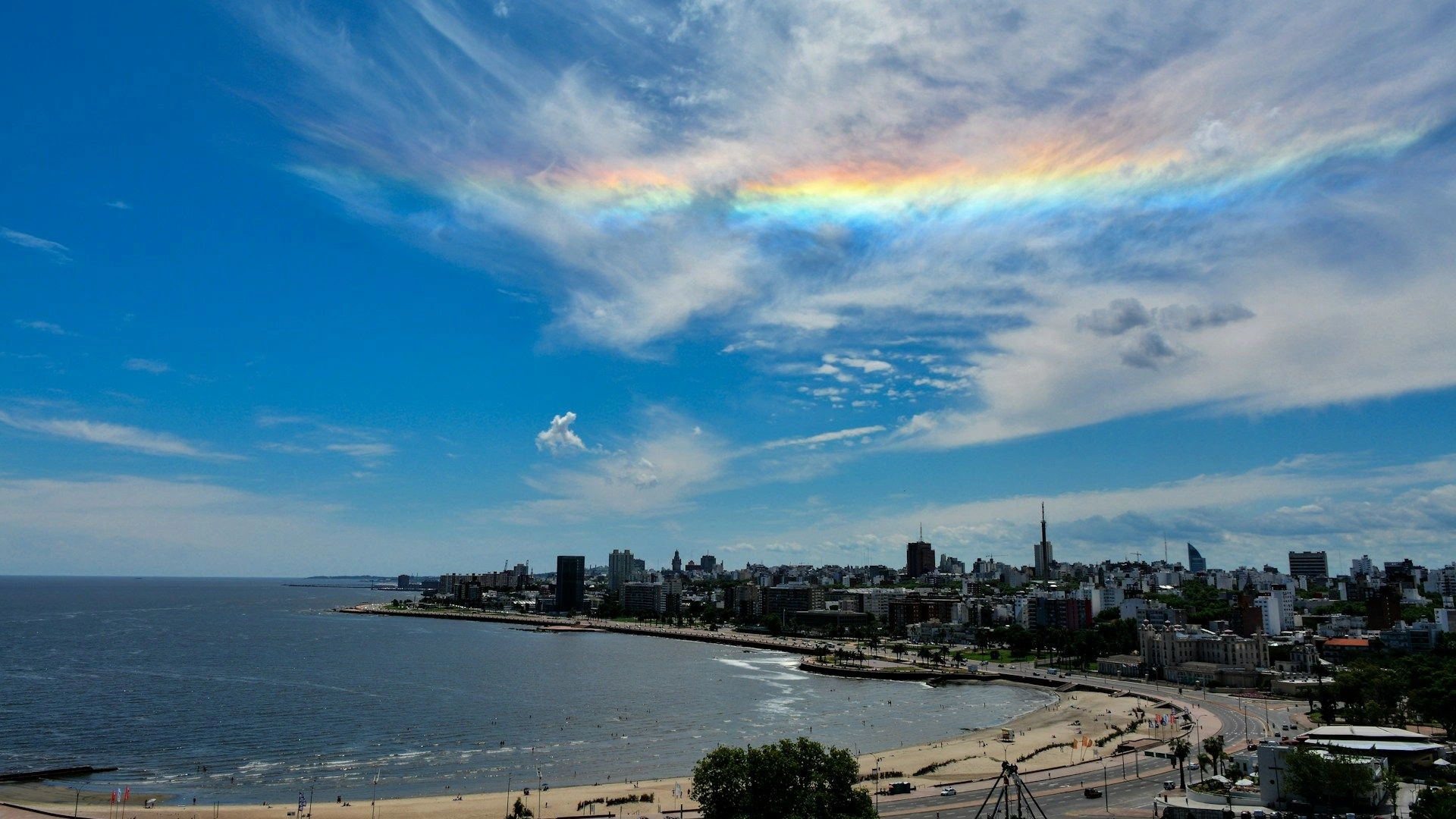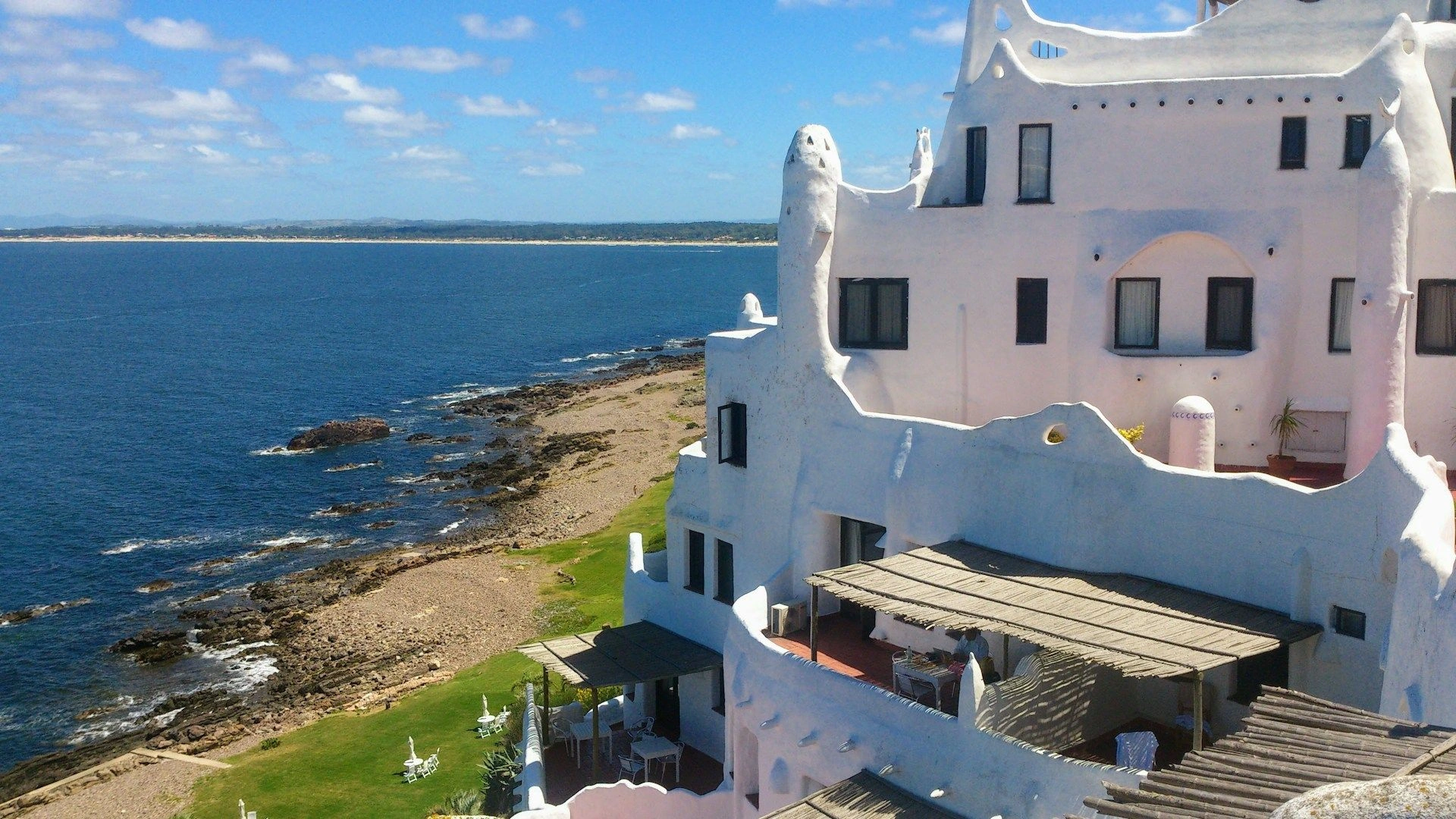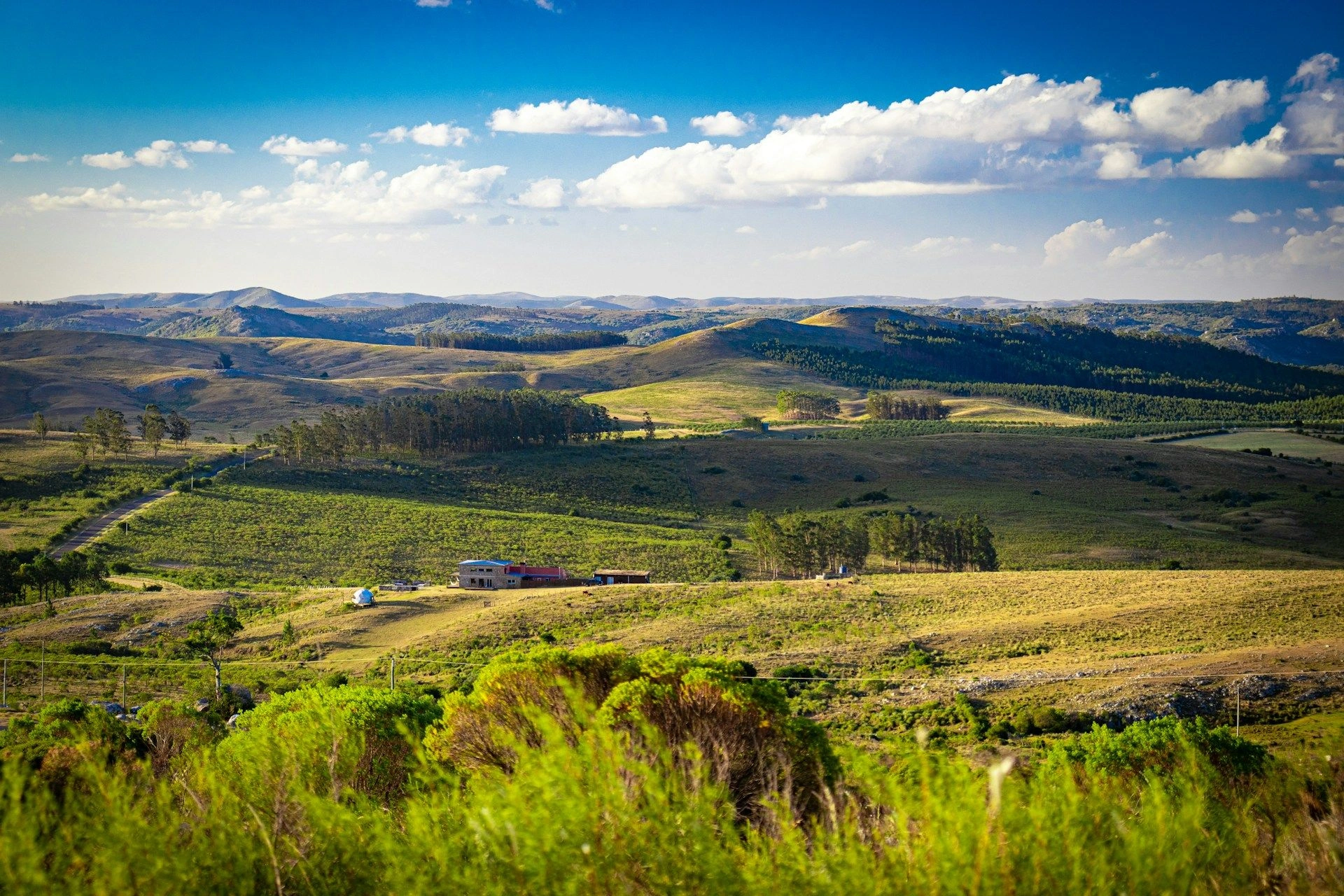Buy-to-Let Investment Properties in UruguayVillas with wide verandas and year-round mild sun

Popular
cities and regions in Uruguay
Best offers
in Uruguay
Benefits of investment in
Uruguay real estate
Legal property rights and transparent system
Uruguay offers full property rights to foreigners, with a legal framework praised for its reliability and low corruption.
Stable democracy with high quality of life
Buyers enjoy safe urban and coastal living, especially in Montevideo and Punta del Este, with great healthcare and infrastructure.
Livable coastline with mild climate year-round
The Atlantic coast offers beach towns with all-season comfort — ideal for both permanent relocation and second-home ownership.
Legal property rights and transparent system
Uruguay offers full property rights to foreigners, with a legal framework praised for its reliability and low corruption.
Stable democracy with high quality of life
Buyers enjoy safe urban and coastal living, especially in Montevideo and Punta del Este, with great healthcare and infrastructure.
Livable coastline with mild climate year-round
The Atlantic coast offers beach towns with all-season comfort — ideal for both permanent relocation and second-home ownership.

Useful articles
and recommendations from experts
Real Estate Investment in Uruguay: South American Stability and Seaside Living
Overview: A Quiet Performer in Latin America
Uruguay stands out in Latin America as a politically stable, economically secure, and investor-friendly country. Often overshadowed by its neighbors Brazil and Argentina, Uruguay offers strong property rights, full ownership for foreigners, a dollarized real estate market, and transparent legal systems. From beachfront properties in Punta del Este to Montevideo's growing urban hubs, the country appeals to retirees, expats, and long-term investors alike.
Types of Property and Investment Segments
Uruguay’s real estate market covers residential, agricultural, and commercial sectors. Popular categories include:
- Urban apartments: Especially in Montevideo’s Pocitos, Punta Carretas, and Ciudad Vieja districts.
- Beachfront homes and condos: Found in Punta del Este, La Paloma, Piriápolis, and José Ignacio.
- Rural estates and farmland: Soy and cattle land in interior departments like Tacuarembó or Durazno.
- Commercial and rental properties: Including office buildings, co-living spaces, and short-term rentals in tourist areas.
The market caters to domestic buyers, wealthy Argentinians, Brazilians, and increasing numbers of North American and European investors looking for second residences or stable rental income.
Ownership and Legal Framework
Uruguay offers one of the most transparent and equal legal regimes for foreign investors in Latin America:
- Foreigners can own property freely with the same rights as locals — no need for residency or special permits.
- Full freehold title is available for all property types, including land and farmland.
- No restrictions on land size or location — even agricultural holdings can be purchased outright.
- Legal system based on civil law, with reliable notarial control and transparent public registries.
All transactions are supervised by a notary public (Escribano), who conducts due diligence, verifies title, and registers the purchase. Real estate sales are mostly conducted in U.S. dollars, and all capital can be repatriated freely.
Property Prices and Market Dynamics
Prices vary by location and type but remain competitive on a global scale. Approximate benchmarks include:
- Montevideo apartments: $1,500–3,000/m² in popular neighborhoods; entry-level from $80,000
- Punta del Este beachfront: $2,500–6,000/m² depending on view and services
- Country homes near coast: $200,000–400,000 for 2–3 bedroom houses with gardens
- Farmland: $2,000–5,000/hectare depending on soil quality and infrastructure
After a pandemic-related lull, the market is rebounding, with demand from expats and regional investors pushing growth in premium zones. The off-season rental market is also expanding with remote work migration.
Transaction Costs and Taxes
Uruguay has transparent, moderate transaction costs:
- Buyer pays ~8%–10% in total:
- 4% notary fees
- 2% property transfer tax (ITP)
- 1% registration and administrative fees
- Bank and miscellaneous: ~0.5%
- Seller pays: 2% transfer tax, and 12% income tax on capital gains (IRPF)
Holding costs:
- Annual property tax (Contribución Inmobiliaria): 0.25%–1% of cadastral value
- Primary school tax (Impuesto de Enseñanza Primaria): ~$50–150/year
- No inheritance tax or wealth tax on individuals
Rental income is taxed at 10.5%, and the system allows for some deductions on maintenance and expenses.
Rental Yields and Investment Performance
Rental yields are modest but stable, and vacancy rates in major cities remain low. Key figures:
- Montevideo long-term rentals: Yields 4%–6% gross annually
- Punta del Este vacation homes: High-season returns of 7%–10%, but seasonal demand limits year-round income
- Farmland leasing: Offers 3%–5% returns through soy or livestock contracts
Short-term rentals via platforms like Airbnb are growing, especially in beach towns and student districts. There’s growing interest in co-living and serviced apartments, particularly among digital nomads and retirees.
Investment Scenarios
- Montevideo apartment: $150,000 investment, rented for $800/month long-term — ~6% gross yield
- Punta del Este villa: Purchased at $350,000, rented for $200/day during 4-month high season — potential 9%+ seasonal return
- Farmland leaseback: 100 hectares at $3,500/ha, leased to soy cooperative for $700/year/ha (~4% net yield)
- Boutique hotel conversion: Historic building in Colonia for $500,000, converted into 6-room guesthouse with annual yield >10%
Best Places to Buy Real Estate
- Montevideo: Pocitos and Punta Carretas for stable rental demand, old town for redevelopment potential
- Punta del Este: Uruguay’s prime destination — mix of luxury, lifestyle, and vacation rental potential
- José Ignacio: Exclusive retreat with rising land and villa prices; popular with international elites
- Colonia del Sacramento: UNESCO city across from Buenos Aires — ideal for heritage property investments
- Interior farmland: Long-term appreciation and passive rental income via agricultural leasing
Risks and Considerations
While Uruguay is a low-risk jurisdiction by Latin American standards, consider:
- Liquidity: Resale times can be slow, especially in non-urban or off-season markets
- Tourism seasonality: Vacation homes generate uneven income unless marketed year-round
- Tax compliance: All income, including offshore ownership, must follow local reporting rules
- Currency exposure: Real estate is dollarized, but Uruguay uses the peso for daily life; inflation management required
Work with licensed realtors and experienced notaries, and always verify property history and cadastral status. Uruguay’s public land registry and notarial system make due diligence reliable.
Conclusion: A Safe Harbor in South America
Uruguay offers real estate investors a rare combination of political calm, property ownership equality, legal clarity, and low taxes. For those seeking a beachside lifestyle, agricultural land, or a foothold in Latin America, it provides long-term stability without many of the headaches found in neighboring markets. Whether you're buying for lifestyle or investment, Uruguay is a safe and sustainable destination with growing international appeal.



